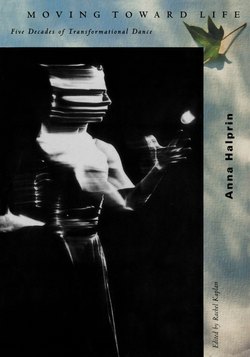Читать книгу Moving Toward Life - Anna Halprin - Страница 16
На сайте Литреса книга снята с продажи.
ОглавлениеLIFE/ART WORKSHOP PROCESSES
This chapter is an excerpt from a manual called Taking Part, written after Lawrence Halprin wrote The RSVP Cycles (1969), and incorporating some of the same information. The RSVP Cycles are a specific approach to creativity which engages a collective in activities including architecture, community building, focus groups, and brainstorming; I have applied this approach to dance. Although I had been doing these kinds of activities earlier, in the RSVP Cycles we found a system for our experiments, one that could be used again and again and shared with other people. The “workshop” was a new idea, and many of the processes we take for granted today grew out of these first explorations. The fractured nature of this piece is a reflection of this workshop process in its evolution.
The RSVP Cycles are the most important set of principles I have worked with because they extend and formalize a method of applied democracy. We have been able to explore attitudes, feelings, and personal objectives which are in themselves very subjective and which can be objectified in this form. The RSVP Cycles give people a sense of commitment, responsibility, and self-determination, encouraging them to take part in whatever it is that affects them. In today’s world, the people who seem to have power are the ones skilled in technology. The RSVP Cycles are a technology of a different sort, a process that has at its heart human needs and experience. In this way, while the arts are a reflection of life, art can also be its guide.
LIFE/ART WORKSHOP PROCESSES
The life/art workshops of the San Francisco Dancers’ Workshop are designed for people interested in movement and the performing arts.
Objectives of these workshops are:
1. To build a common basis of experiences from which we can communicate
2. To experience and learn the techniques of collective creativity
3. To use the approach of the RSVP Cycles for collective creativity
4. To maximize diversity—cultural, ethnic, female/male, old/young, rich/poor, sexual differences
5. To create rituals and myths out of common experience
6. To fulfill individual expectations within the group experience
7. To develop group awareness to the environment
8. To recycle the experiences of the workshop into daily life
COMMON BASIS OF COMMUNICATION
